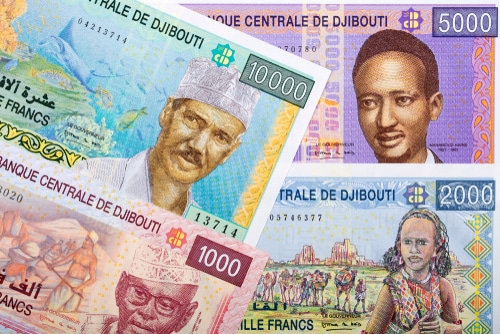When it comes to international currencies, the Djiboutian Franc (DJF) might not be the first one that comes to mind. However, for those engaging in trade or travel in East Africa, or for those simply curious about global currencies, knowing about the Djiboutian Franc can be crucial. This blog explores the history, features, and practicalities of this currency while offering insights into its role in the local and global economy.
What is the Djiboutian Franc?
The Djiboutian Franc is the official currency of Djibouti, a small yet geopolitically significant country located on the Horn of Africa. Denoted by the symbol Fdj, the currency is abbreviated as DJF in the international financial system.
What makes the Djiboutian Franc notable is its stability, which is quite rare for a relatively small nation. Since 1949, it has been pegged to the U.S. Dollar, fostering economic trust and offering a level of predictability for both locals and foreign investors.
Quick Facts About the Djiboutian Franc:
- ISO Code: DJF
- Symbol: Fdj
- Pegged to: U.S. Dollar (1 USD ≈ 177.72 DJF)
- Regulated by: Central Bank of Djibouti
Now that you have a quick overview, let’s explore how this currency came into existence.
A Brief History of the Djiboutian Franc
The Djiboutian Franc has a legacy that dates back to colonial times. Originally introduced in 1949, it replaced the French Franc in French Somaliland (modern-day Djibouti) at parity. After Djibouti gained independence in 1977, the currency retained its name and structure but became independently managed under the Central Bank of Djibouti.
By pegging the Djiboutian Franc to the U.S. Dollar in 1949, Djibouti set the foundation for economic stability. This fixed exchange rate has enabled steady growth, especially important for a trade-driven economy.
Features of the Djiboutian Franc
The Djiboutian Franc combines functionality and aesthetics. Its coins and banknotes reflect Djibouti’s culture, history, and natural beauty.
Banknotes
Djiboutian banknotes come in denominations of Fdj 1,000, Fdj 2,000, Fdj 5,000, and Fdj 10,000. Each note is beautifully designed with images of local landmarks, wildlife, and cultural symbols, celebrating the country’s heritage.
Coins
Coins vary from 1 Franc to 250 Francs. While smaller coins like the 1 and 2 Franc pieces are used less frequently, coins of 50 Francs and above are widely circulated.
Security Features
Djiboutian banknotes include standard security features like watermarks, security threads, and microprinting, ensuring they remain difficult to counterfeit, even in a cash-oriented economy.
Why the Djiboutian Franc Holds Value
The stable peg to the U.S. Dollar is instrumental in the Franc’s value retention. It provides a solid baseline for trade and investment. Djibouti’s strategic location at the crossroads of Africa, the Middle East, and Asia makes it a pivotal trading hub, further cementing its currency’s relevance.
Djibouti also hosts multiple military bases, including those of the U.S., France, China, and Japan, injecting steady streams of foreign investment into the economy. Additionally, the nation thrives on port services for global shipping routes, making foreign currency reserves robust.
How to Use the Djiboutian Franc for Daily Transactions
If you’re planning a trip to Djibouti or engaging in business dealings, here’s how to make the most of your money in the local economy.
Cash is King
While credit cards are accepted in upscale hotels and some establishments, the Djiboutian economy is primarily cash-based. Carrying Djiboutian Francs is essential for everyday purchases, especially in local markets, smaller towns, and rural areas. Visit banks or currency exchange counters to avoid inflated rates found in tourist-heavy areas.
Currency Exchange
Exchange options include banks, authorized exchange providers, and even some hotels. The Central Bank of Djibouti closely regulates the currency to avoid fluctuations, ensuring fair rates during exchanges.
Pro Tip: Always compare rates before exchanging money, and check for hidden fees.
Tipping in Djibouti
Tipping is not mandatory, but a token of appreciation for good service is always welcome. Rounding off to the nearest bill in cafés or taxis is a common practice.
Remittances and the Djiboutian Franc
For expatriates and families, sending and receiving money to Djibouti is a frequent necessity. Remittance platforms like Remitly, which support the Djiboutian Franc, make international transfers quick and seamless. These platforms provide transparent rates, low fees, and promise reliable delivery times.
Some options to explore include:
- Bank deposits in Djiboutian accounts
- Mobile wallets
- Cash pick-ups across various locations
Common Questions About the Djiboutian Franc
1. Is the Djiboutian Franc a strong currency?
Yes, because of its fixed exchange rate to the U.S. Dollar, the Djiboutian Franc is considered very stable and reliable.
2. Can I use U.S. Dollars in Djibouti?
Yes. While the Djiboutian Franc is the official currency, U.S. Dollars are widely accepted, especially in hotels, tourist areas, and high-end establishments. However, smaller vendors might prefer local currency.
3. How can I send money to Djibouti securely?
Platforms like Remitly offer secure, low-fee options to send money directly to Djibouti in Djiboutian Francs. Transactions are fast, simple, and reliable.
4. Where can I learn about the exchange rate?
You can track live exchange rates through financial news sites, banking apps, or online platforms like Remitly, which often display rates with no hidden costs.
Why Understanding the Djiboutian Franc Matters
Although relatively small in scope, the Djiboutian economy plays a crucial role in global trade, shipping, and geopolitics. Consequently, the Djiboutian Franc remains a currency worth knowing about for enthusiasts, travelers, and professionals alike. Its stability, rich cultural depiction, and strategic importance make it an interesting contender in the world of international currencies.
Whether you’re visiting Djibouti, remitting money, or just broadening your knowledge, understanding the Djiboutian Franc is a step toward smarter financial interactions.
